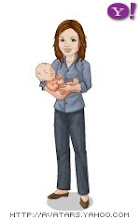- Copyright protects expressions, not ideas. For example, an idea for a love song cannot be copyrighted. The song must exist as a recording or written music to constitute an expression. (p.2)
- Certain expressions cannot be copyrighted. For example, a calendar or a list of ingredients. A recipe, however, can be protected; such as Colonel Sanders's recipe for Kentucky Fried Chicken.(p.4)
- Once an expression is in a concrete medium, for example, a drawing, it has a degree of copyright protection. That means even a doodling on a notebook corner, has copyright protection. (p. 3)
- In order to file a law suit, the expression in question must be registered at with the U.S. Copyright Office. Simply visit www.loc.gov/copyright/ (p.4)
- Public domain is information that is no longer protected by copyright. There are many public domain web sites, such as http://gutenberg.net/ that has free electronic texts and e-books. (p.7)
Russell, C. (Ed.). (2004). Complete copyright: An everyday guide for librarian. American Librarians Association.

1 comment:
I was also a little perplexed at what is protected under copyright laws and what isn't. Thank you for providing an outline for the basics. I'm still a little iffy on the difference between a copyright and a trademark. This might sound a little juvenile, but when Paris Hilton tried - and succeeded, I think - to protect 'her' expression "That's hot," did she obtain copyright protection or trademark protection? Does she really receive some kind of compensation any time that expression is used in print? I hope not, although I have to give her credit for being a great businesswoman. Must run in the family. Sorry, I kind of veered off topic a little. I suppose that because "That's hot" is an expression, it could have been copyrighted.
Post a Comment